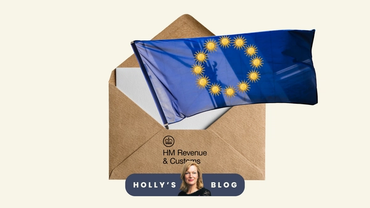UK Budget 2024: Potential pension tax relief changes and their impact
By Boring Money
16 Oct, 2024
Rachel Reeves will launch her first Budget on 30 October. As the new Government is keen to remind us, the Chancellor has a fiscal hole to fill. At the moment, tax benefits around pensions are generous. This, along with a lot of stern warnings about ‘tough choices’, has prompted fevered speculation about a potential raid on pension tax benefits.

As it stands, the system looks ripe for reform at a time when Government finances are stretched. There is up to 45% tax relief on pension contributions. Pensions can be inherited free of Inheritance Tax, and retirees can draw a 25% tax-free lump sum. These reliefs are expensive, even if the Government is keen to avoid the accusation of another attack on pensioners.
People are certainly spooked. A recent report from pension provider interactive investor said the number of its customers contributing the maximum £60,000 into their SIPP has risen 64% since the start of the tax year, compared to the same period in 2023. It has also seen a notable rise in cash withdrawals, which make up part or all of the 25% tax-free lump sum allowance. The number of one-off contributions into its SIPPs has also increased.[1]
Nevertheless, there are reasons to hope it won’t be as bad as expected. The Government has already ruled out any reinstatement of the lifetime allowance – this had previously limited the amount that could be saved tax-free in a pension to £1,073,000. Equally, the Government has promised that the tax-free lump sum is safe[2]. Apart from that, money paid out from a pension is subject to Income Tax in the same way as income from a salary, or self-employment. The Government has said it won’t touch those taxes either.
What does this leave?
The most obvious target is the tax relief on pensions. This is very expensive, costing around £50bn[3], when Income Tax and national insurance relief for companies are taken into consideration. Before every recent Budget there has been speculation that the Chancellor will cut this relief, though none have yet bitten the bullet.
As it stands basic rate taxpayers get 20% tax relief, while higher rate taxpayers get 40% and additional rate taxpayers get a whopping 45% if they claim the rest via their self-assessment tax return. The table below breaks it down:
Usual Tax Band | Basic Rate | Higher Rate | Additional Rate |
Tax Relief | 20% | 40% | 45% |
Correct as at 2024-25 tax year.
Surveys tend to show that consumer understanding on pension tax relief is poor.[4][5] Also, while basic rate tax relief is added to pensions automatically, higher and additional rate tax relief needs to be claimed through a tax return. Some people may reinvest it in their pension, but they don’t have to. As such, cutting higher rate tax relief might be a politically easier pill to swallow.
David Brooks, Head of Policy at consulting group Broadstone, says:
This is the main rumour doing the rounds and would have the biggest impact on people saving for a pension but is likely to be the hardest. In brief, the proposal is to change giving tax relief off the top rate of marginal tax someone is paying, and instead set it at a different rate. This could be either a new standalone rate, say 30%, or at basic rate for all.
The rumours are now that Rachel Reeves has come up against union objections.[5]. Certainly, higher-paid public sector workers, who often have generous defined benefit pensions, could be hit by the changes. This may stop any changes to the rules.
Changes to Inheritance Tax on pensions savings
Brooks believes this is the most likely target for the Government. The current rules, introduced by George Osborne in 2015 look unusually generous in this era of straightened Government finances. Pensions sit outside an individual’s estate for Inheritance Tax purposes. Anything left in the pension of the person who has died can be paid to the beneficiaries as a lump sum or at regular intervals. If the person died before age 75, the income from the pension is free of tax in the hands of the beneficiary.
Some normalisation of these rules, so that pensions are treated in the same way as other assets on death, would be “relatively easy and potentially lucrative”, says Brooks. It has always been open to question as to whether these rules acted as an incentive to save into pensions.
Tax-free lump sum
It is also possible that the Government puts a lower cap on the tax-free lump sum. This would get round the Government’s promise not to abandon it, while raising some cash. Retirees can currently withdraw up to 25% of their pension tax-free up to a maximum of £268,275, but this maximum could be cut back. Becky O’Connor, Director of Public Affairs at PensionBee, said:
The £100,000 cap that has been rumoured would be a low threshold, and would mean that anyone with a total pension of £400,000 or more (roughly the amount that someone with a ‘moderate’ living standard in retirement would need) would be impacted…Less dramatic alternatives might include changing the percentage from 25% to say, 20%, or making a smaller change.
Other options
While these are the three likeliest options, there are other ideas the Chancellor might consider. A tax on investment returns is a possibility, albeit remote. Brooks says:
Always on the hunt for a rabbit the Chancellor could pull out the hat, a tax on investment returns targeted at wealthier pensioners may be an option. Exempting certain assets such as UK equities or UK private equity may be a way for the Treasury to stimulate its productive investment regime while raising money from a) those not of working age and b) those with the broadest shoulders.
There is also a separate issue about trying to encourage institutional pension funds (such as those who manage workplace schemes) to invest more in UK assets, supporting domestic capital markets and investment. This is currently subject to a consultation. It’s a wonky point, and investors probably won’t see a lot of difference, but it means their pension may be invested slightly differently.
Whatever the issue, Myron Jobson, Senior Personal Finance Analyst at interactive investor, cautions against hasty decisions:
Knee-jerk reactions to unverified rumours can lead to costly mistakes, such as unnecessary charges or missed growth opportunities. Remember, any significant policy shifts typically go through extensive consultations and legislative processes. This means you'll likely have ample time to understand and adapt to any confirmed changes.
It is to be hoped that the government remembers that it needs people to save for their retirements in order to reduce their dependency on the State in later life. Pension tax breaks look generous as they stand, but it is important the Chancellor doesn’t go too far the other way and disincentivise retirement saving altogether.
---
[2] Financial Times, 'Starmer admits to ‘old fashioned mistake’ on pension tax policy', June 2024
[3] Pensions Age, 'Cost of pensions tax relief passes £50bn mark for first time', January 2023
[4] Nutmeg, 'Understanding tax relief on pensions – are you missing out?', September 2023






